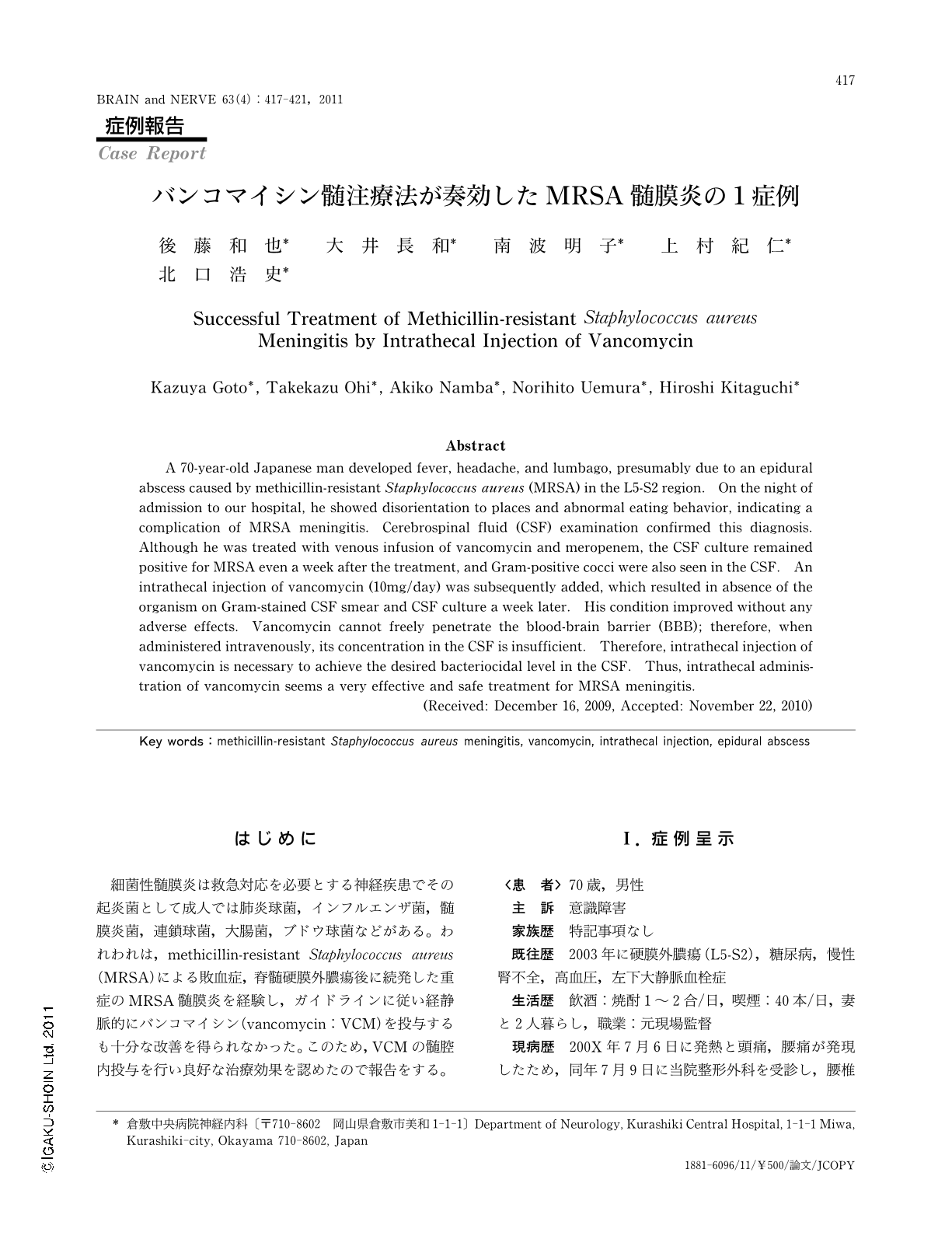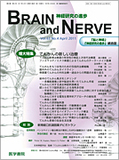Japanese
English
- 有料閲覧
- Abstract 文献概要
- 1ページ目 Look Inside
- 参考文献 Reference
はじめに
細菌性髄膜炎は救急対応を必要とする神経疾患でその起炎菌として成人では肺炎球菌,インフルエンザ菌,髄膜炎菌,連鎖球菌,大腸菌,ブドウ球菌などがある。われわれは,methicillin-resistant Staphylococcus aureus(MRSA)による敗血症,脊髄硬膜外膿瘍後に続発した重症のMRSA髄膜炎を経験し,ガイドラインに従い経静脈的にバンコマイシン(vancomycin:VCM)を投与するも十分な改善を得られなかった。このため,VCMの髄腔内投与を行い良好な治療効果を認めたので報告をする。
Abstract
A 70-year-old Japanese man developed fever, headache, and lumbago, presumably due to an epidural abscess caused by methicillin-resistant Staphylococcus aureus (MRSA) in the L5-S2 region. On the night of admission to our hospital, he showed disorientation to places and abnormal eating behavior, indicating a complication of MRSA meningitis. Cerebrospinal fluid (CSF) examination confirmed this diagnosis. Although he was treated with venous infusion of vancomycin and meropenem, the CSF culture remained positive for MRSA even a week after the treatment, and Gram-positive cocci were also seen in the CSF. An intrathecal injection of vancomycin (10mg/day) was subsequently added, which resulted in absence of the organism on Gram-stained CSF smear and CSF culture a week later. His condition improved without any adverse effects. Vancomycin cannot freely penetrate the blood-brain barrier (BBB); therefore, when administered intravenously, its concentration in the CSF is insufficient. Therefore, intrathecal injection of vancomycin is necessary to achieve the desired bacteriocidal level in the CSF. Thus, intrathecal administration of vancomycin seems a very effective and safe treatment for MRSA meningitis.
(Received: December 16,2009,Accepted: November 22,2010)

Copyright © 2011, Igaku-Shoin Ltd. All rights reserved.


